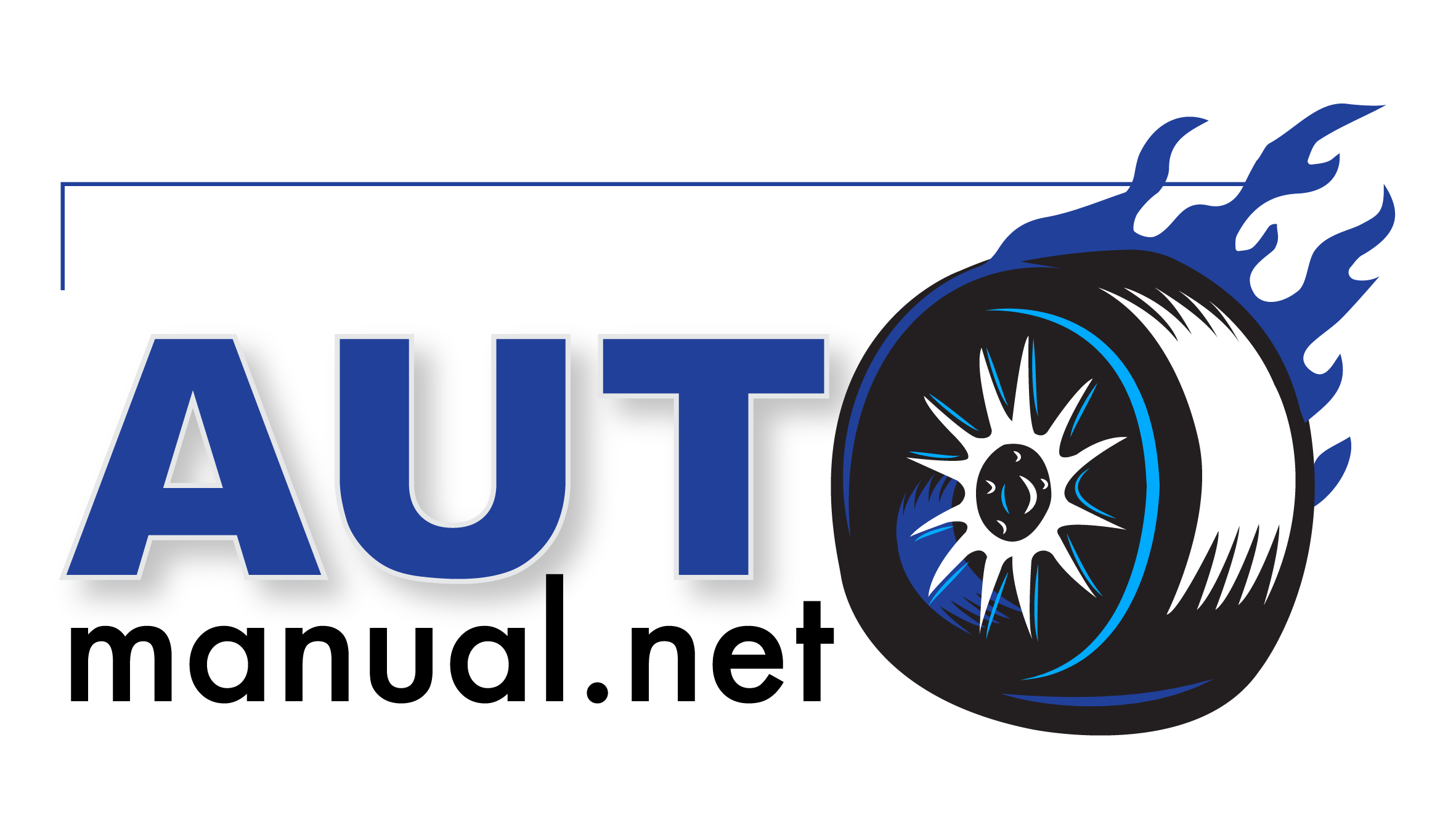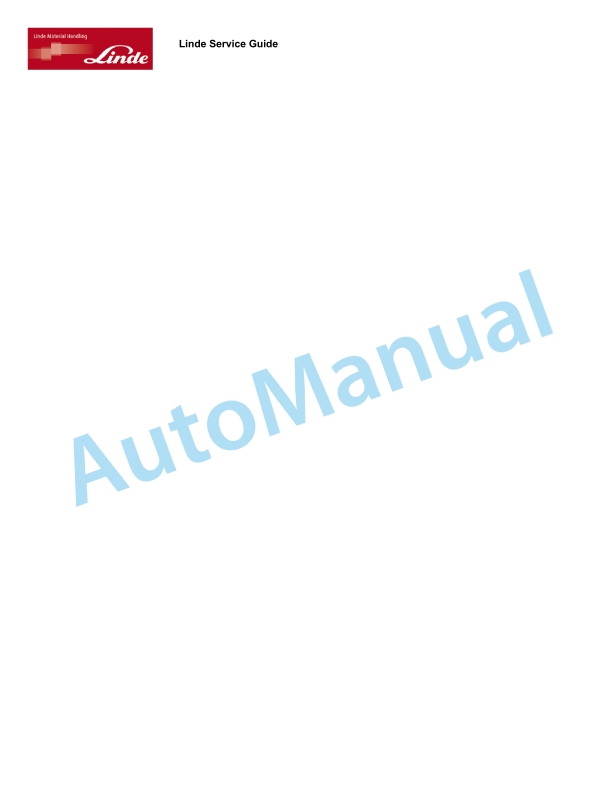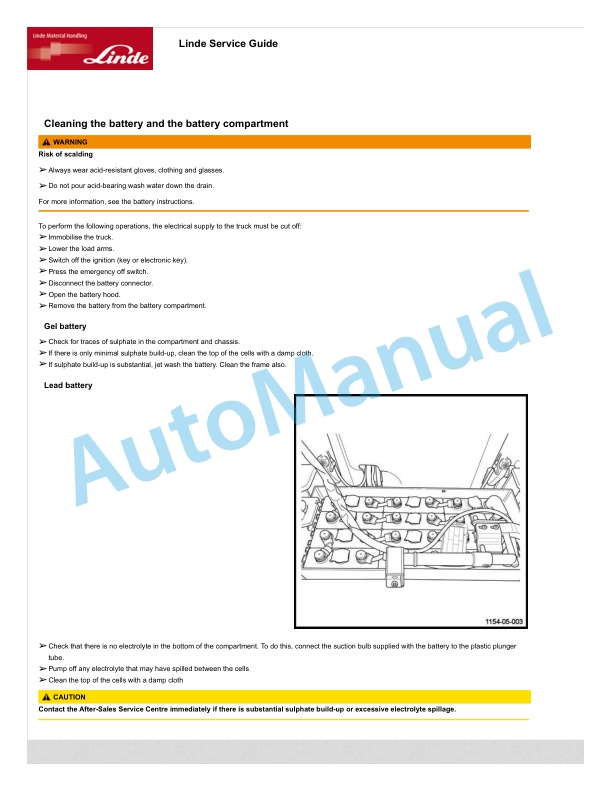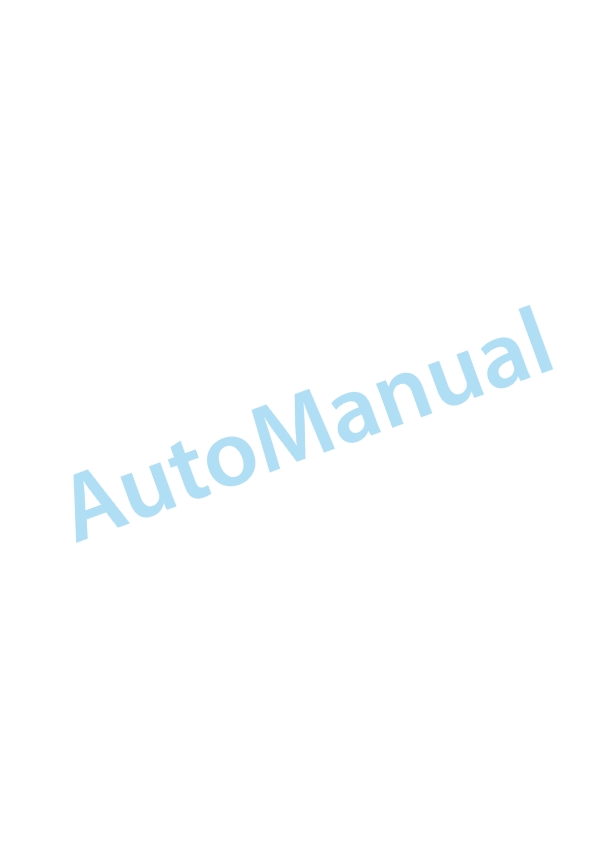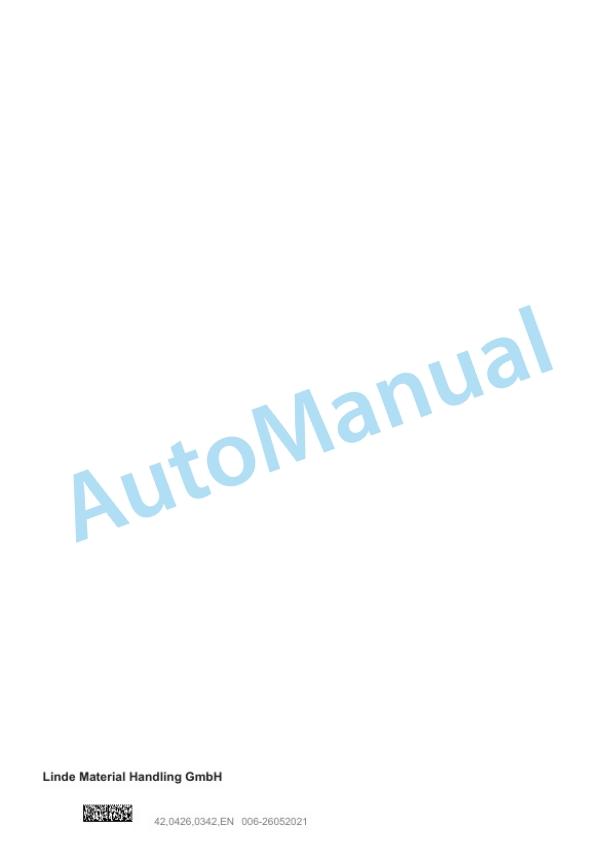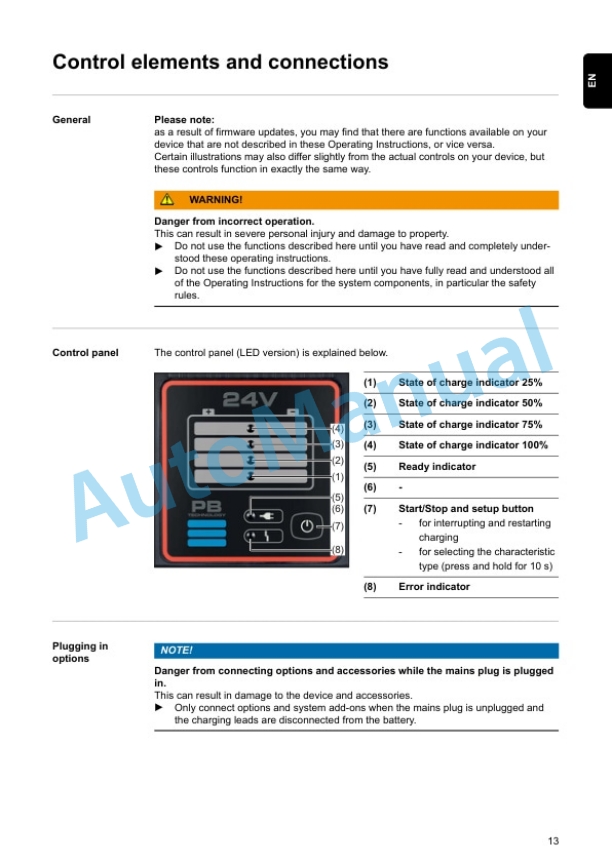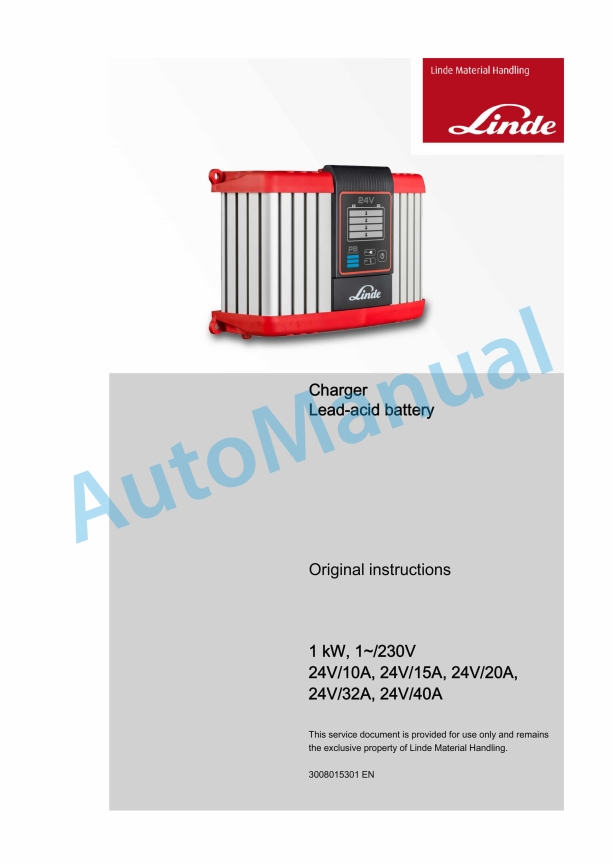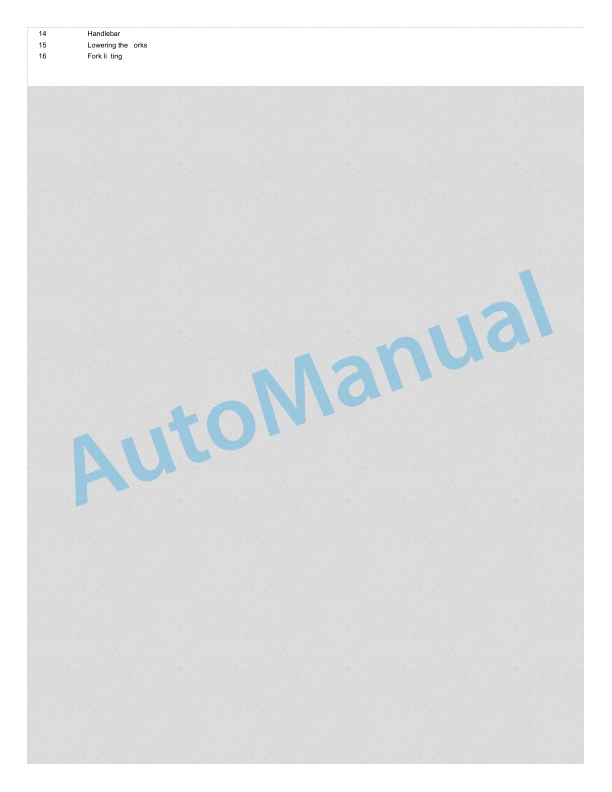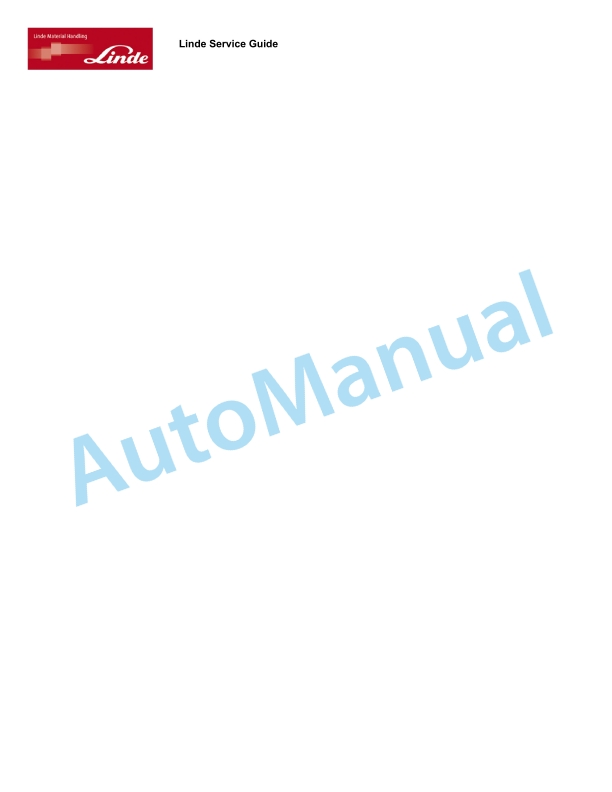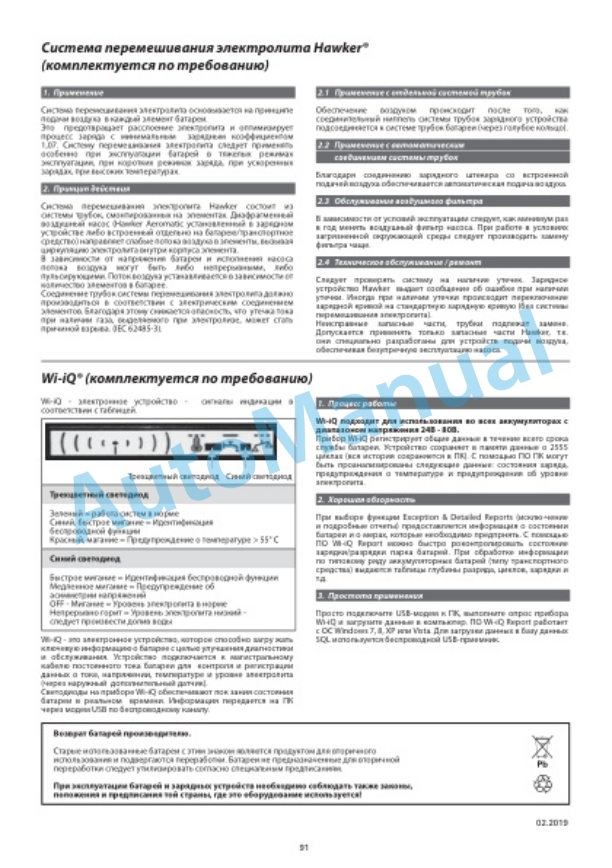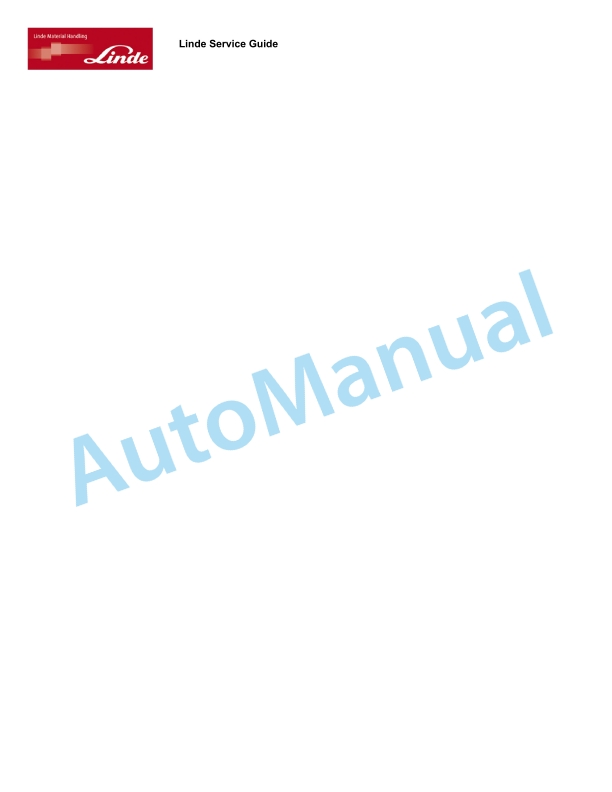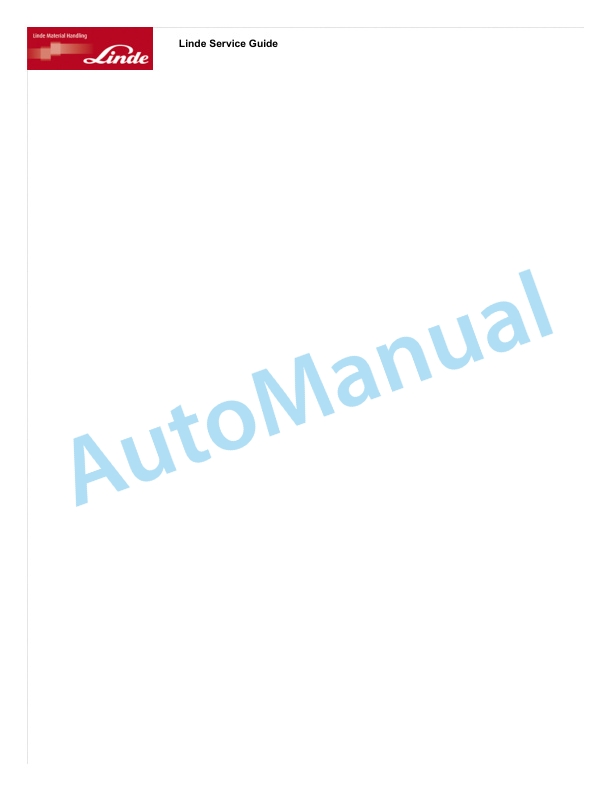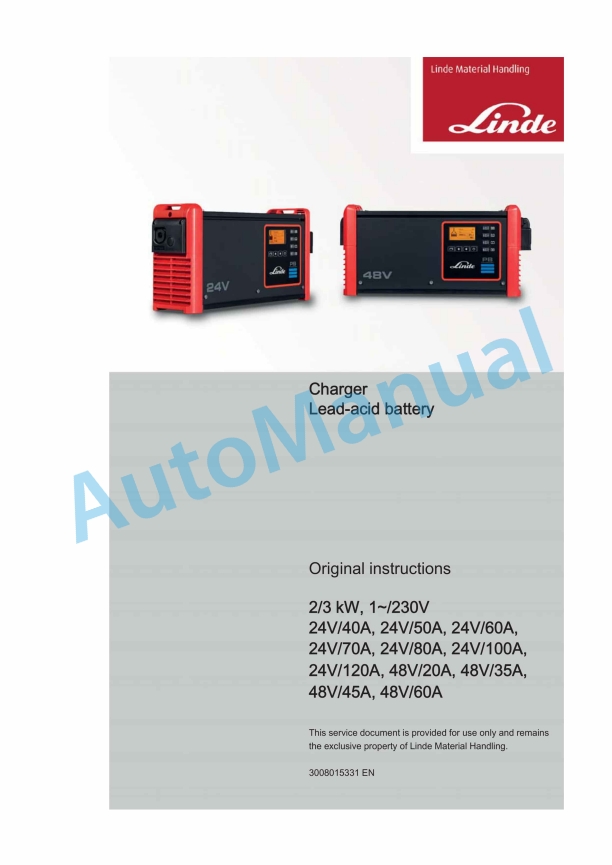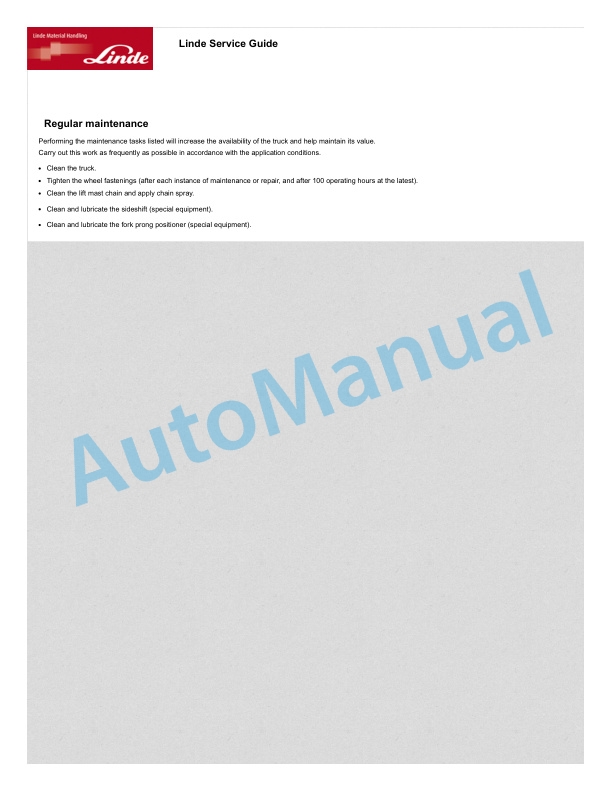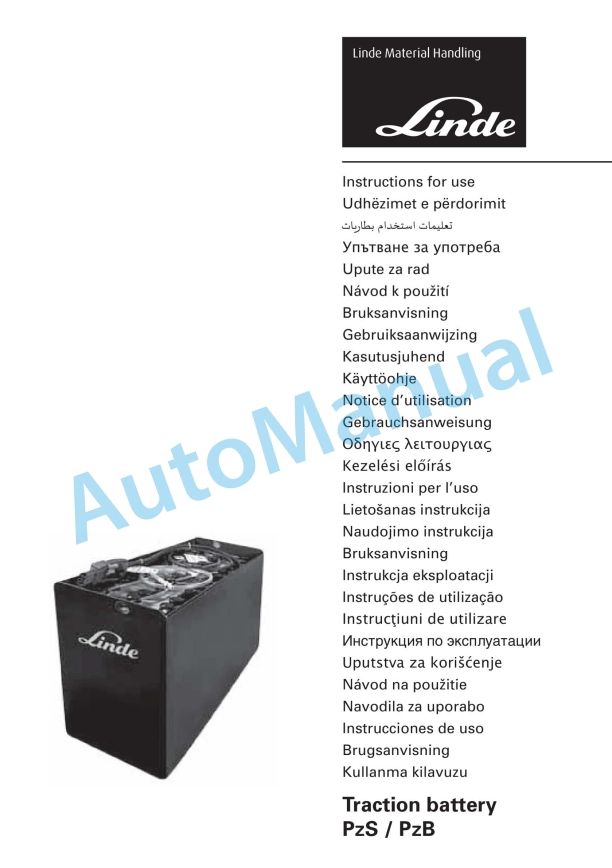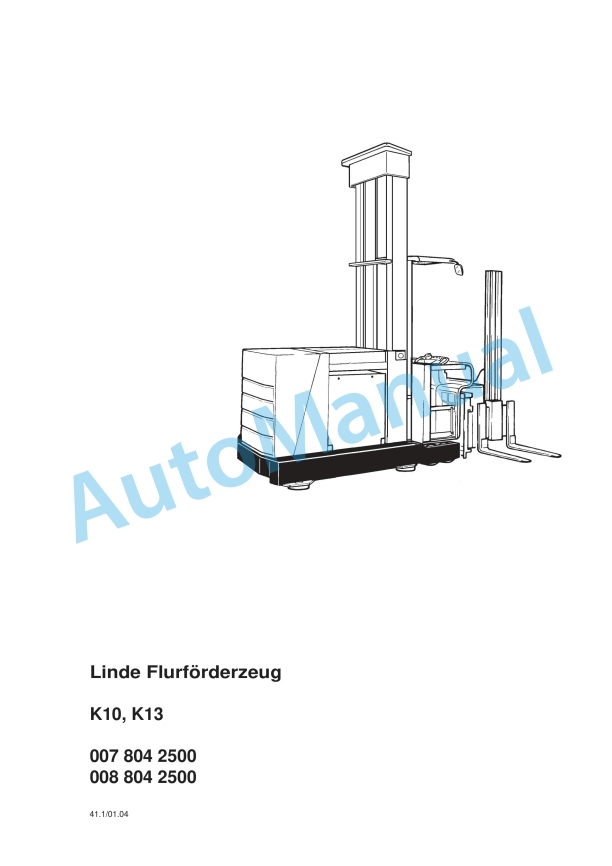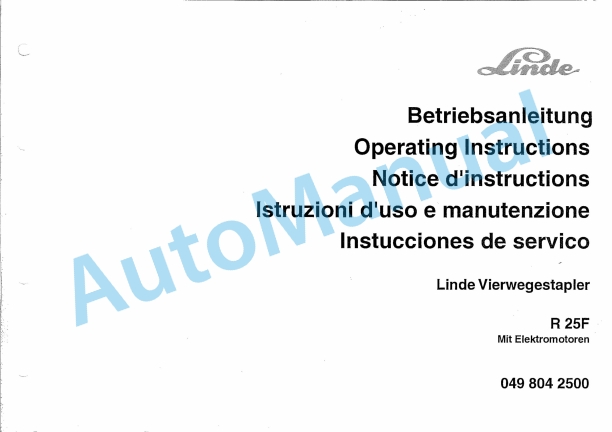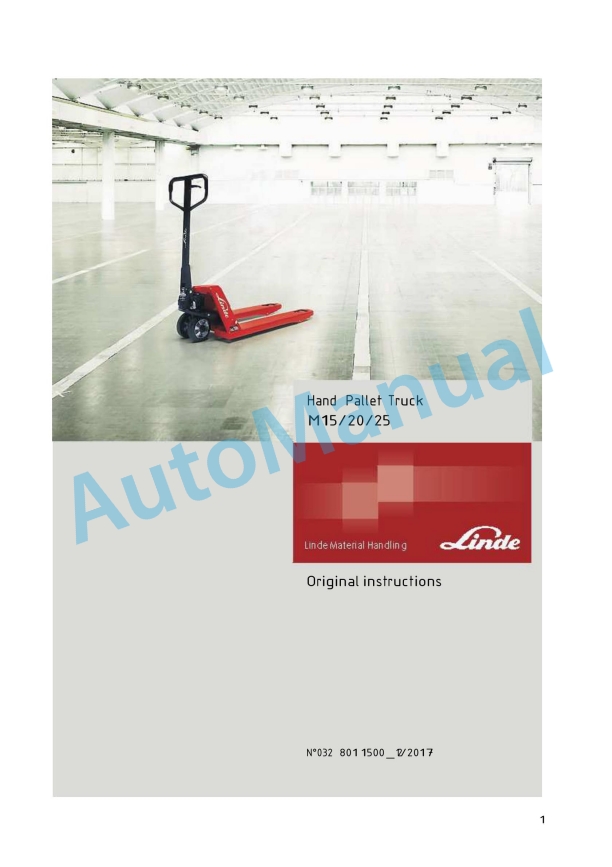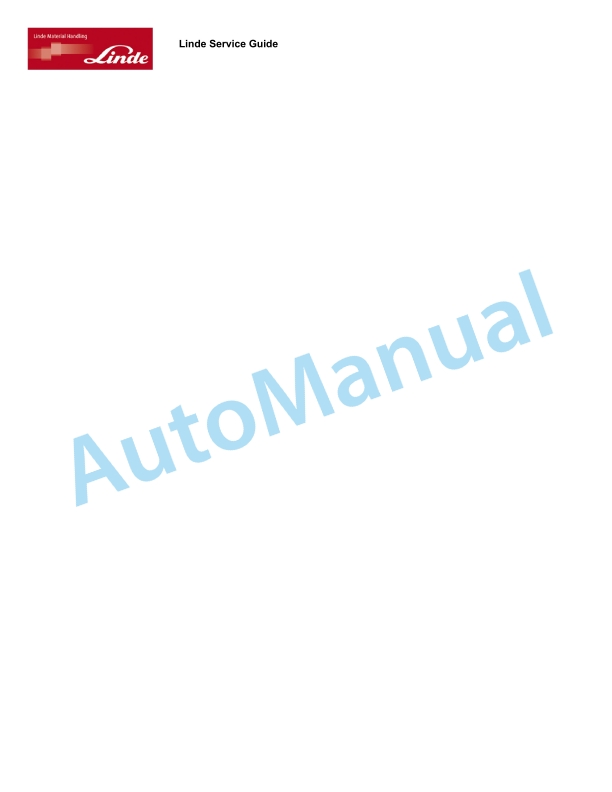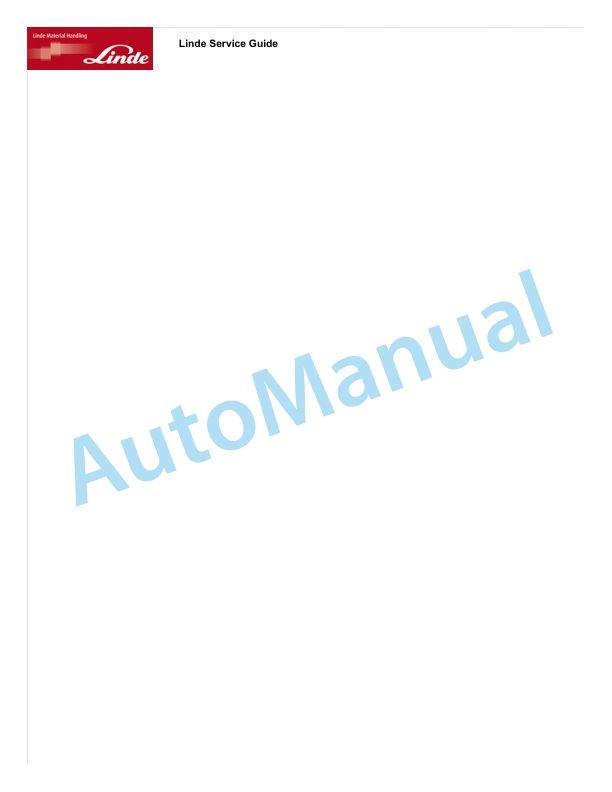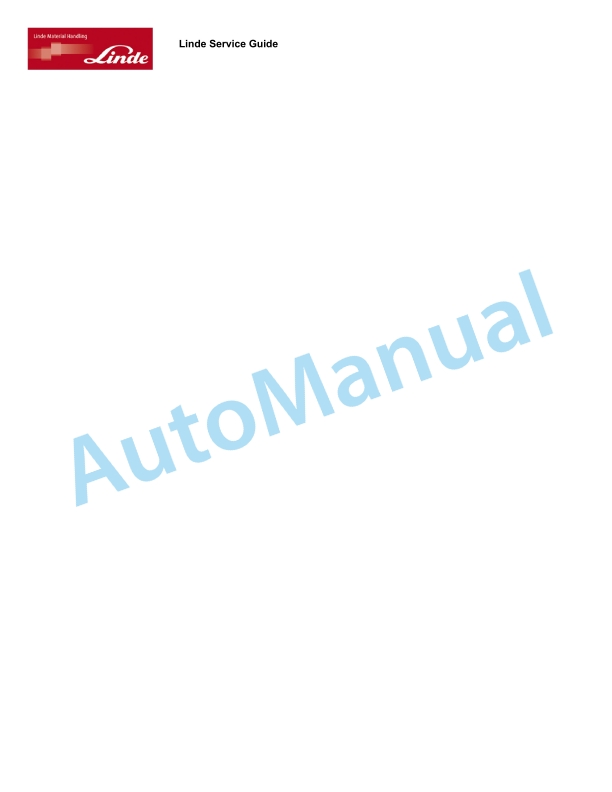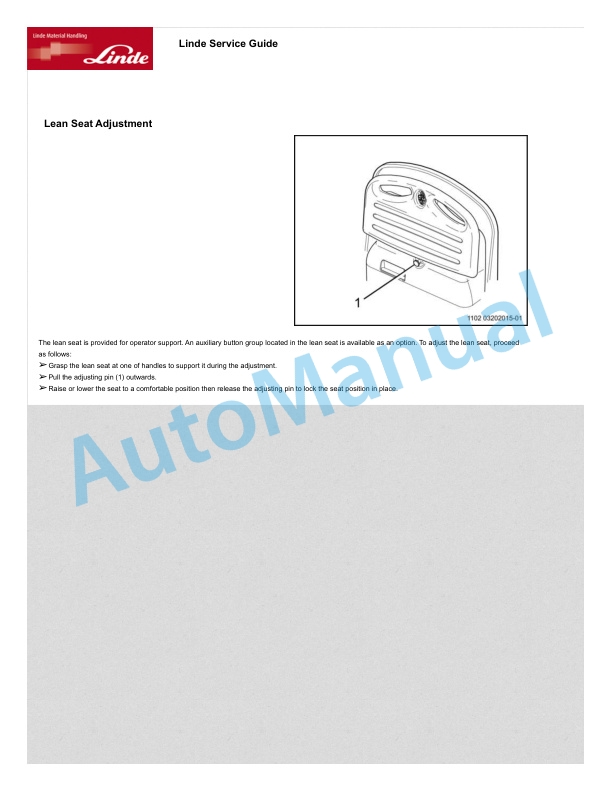Linde 1164-01 – D12RW Operating Instructions SN W41164J00017 and up SN up to W41164V00113
$20.00
- Type Of Manual: Operating Instructions
- Manual ID: SN W41164J00017 and up SN up to W41164V00113
- Format: PDF
- Size: 28.6MB
- Number of Pages: 260
- Serial Number:
SN W41164J00017 and up SN up to W41164V00113
Category: Linde Operator Manual PDF
-
Model List:
- D12RW
- 1. Double pallet stackerD12 RW
- 1.1. Table of content
- 1.2. Introduction
- 1.2.1. Your truck
- 1.2.2. Conformity marking
- 1.2.3. Declaration that reflects the content of the declaration of conformity
- 1.2.4. Identification label
- 1.2.5. Correct use
- 1.2.6. Description of use and climatic conditions
- 1.2.7. Impermissible use
- 1.2.8. Symbols used
- 1.2.9. Taking delivery of the industrial truck
- 1.2.10. Rules for the operating company of industrial trucks
- 1.2.11. Disposing of gel and lead batteries
- 1.3. Safety
- 1.3.1. Safety regulations
- 1.3.2. Handling consumables
- 1.3.3. Emissions
- 1.3.3.1. Noise emission values
- 1.3.3.2. Vibration values for upper limbs
- 1.3.4. Residual risks
- 1.3.5. Stability
- 1.3.6. Competent person
- 1.3.7. Periodic general checks on the trucks
- 1.4. General views
- 1.4.1. General views
- 1.4.2. General view of the technical compartment
- 1.4.3. Controls
- 1.4.4. Display
- 1.4.5. Electronic key (option)
- 1.4.6. Labels
- 1.5.1. Technical description
- 1.5.2. Checks before first commissioning
- 1.5.3. Preshift checks
- 1.5.4. Daily checks before starting work
- 1.5.4.1. Checking the operation of the controls
- 1.5.4.2. Checking the safety devices
- 1.5.5. Truck operating instructions
- 1.5.6. Stepping on.off the truck
- 1.5.7. Drivers compartment settings
- 1.5.7.1. Adjusting the seat
- 1.5.7.2. Adjusting the floor
- 1.5.7.3. Seat heater option
- 1.5.8. Display
- 1.5.8.1. Selection buttons
- 1.5.8.2. Display of the drive wheel position
- 1.5.8.3. Using the display unit
- 1.5.9. Driving regulations
- 1.5.10. Driving with a dualpedal truck
- 1.5.10.1. Determining the direction of travel
- 1.5.10.2. Operation of operator presence detection
- 1.5.10.3. Starting up
- 1.5.10.4. Forward travel.reverse travel
- 1.5.10.5. Steering
- 1.5.10.6. Reversing the direction of travel
- 1.5.10.7. Emergency off switch
- 1.5.10.8. Horn
- 1.5.10.9. Braking
- 1.5.10.10. Using the parking brake
- 1.5.10.11. Drivers overhead guard
- 1.5.10.12. ECO mode
- 1.5.10.13. Using the truck on a slope
- 1.5.11. Singlepedal option
- 1.5.11.1. Specific features of the singlepedal option
- 1.5.11.2. Operation of operator presence detection
- 1.5.11.3. Forward travel.reverse travel
- 1.5.11.4. Reversing the direction of travel
- 1.5.11.5. Braking
- 1.5.11.6. Using the truck on a slope
- 1.5.12. connect access system (LFM)
- 1.5.13. Transporting loads
- 1.5.13.1. Reading the capacity plate
- 1.5.13.2. Using the mast
- 1.5.13.3. Progressive stopping of the carriage in the lower position
- 1.5.13.4. Handling a single load
- 1.5.13.5. Handling two stacked pallets
- 1.5.14. Driving assistance system Speed Management
- 1.5.14.1. Description of Speed Management
- 1.5.15. Cold store usage (optional)
- 1.5.16. Before leaving the truck
- 1.5.17. Gel and lead battery
- 1.5.17.1. General information on batteries
- 1.5.17.2. Charging the battery
- 1.5.17.3. Opening and closing the battery hood
- 1.5.17.4. Disconnecting.connecting the battery connector
- 1.5.17.5. Charging the battery using an external charger
- 1.5.17.6. General information on changing batteries
- 1.5.17.7. Changing the side access battery
- 1.5.18. Handling the truck in an emergency
- 1.5.18.1. Emergency lowering of the mast
- 1.5.18.2. Towing the truck
- 1.5.19. Handling the truck in specific situations
- 1.5.19.1. Slinging the truck
- 1.5.19.2. Lifting the truck
- 1.6. Maintenance
- 1.6.1. General information
- 1.6.2. Technical data for inspection and maintenance
- 1.6.3. Recommended lubricants
- 1.6.4. Accessing the technical compartment
- 1.6.5. Regular maintenance
- 1.6.6. Service plan
- 1.6.7. Chassis, bodywork and fittings
- 1.6.7.1. Cleaning the truck
- 1.6.7.2. Cleaning the battery and the battery compartment
- 1.6.8. Steering and wheels
- 1.6.8.1. Checking the condition of the wheels
- 1.6.9. Electrical equipment
- 1.6.9.1. Cleaning and blowing out the electrical components
- 1.6.9.2. Checking the electrolyte level and topping up with water
- 1.6.9.3. Checking the condition of cables, terminals and the battery connector
- 1.6.10. Hydraulic systems
- 1.6.10.1. Checking the hydraulic system for leaks
- 1.6.10.2. Checking the hydraulic oil level
- 1.6.11. Lift mast
- 1.6.11.1. Cleaning and lubricating the chains
- 1.6.11.2. Adjusting the length of the mast chains
- 1.6.11.3. Checking the protective screen
- 1.6.12. Storage and disposal
- 1.6.12.1. Storage of truck
- 1.6.12.2. Disposal of old trucks
- 1.7. Datasheet
- 1.7.1. D12 RW datasheet
- 1.7.2. D12 RW mast types
- 1.7.3. Ecodesign requirements for electric motors and variable speed drives
- 2. Leadacid battery charger 24V
- 3. Leadacid battery charger 24V . 48V
- 4. Leadacid battery charger 24V . 48V . 80V
- 5. Lithiumion batteriesT20R.R.S.SF.SR, T25R.R.S.SF.SRD12R.R.S.SFL14.16R.R
- 5.1. Table of content
- 5.2. Introduction
- 5.2.1. Introduction
- 5.2.2. Information on the conformity of lithiumion batteries
- 5.3. Safety
- 5.3.1. Special lithiumion safety rules
- 5.3.2. What to do in the event of incorrect use
- 5.3.3. Personal protective measures following an incident
- 5.3.4. What to do in the event of an accidental spillage
- 5.3.5. Transporting a lithiumion battery
- 5.3.6. Scrapping lithiumion batteries
- 5.4. General views
- 5.4.1. Lithiumion battery types
- 5.4.2. Labels on the top of lithiumion batteries
- 5.4.3. Labels on the sides of lithiumion batteries
- 5.5.1. Checking the charge status
- 5.5.2. Connecting.disconnecting the battery connector
- 5.5.3. Commissioning a truck equipped with a side access lithiumion battery
- 5.5.4. Automatic battery shutoff
- 5.5.5. Battery fitted with a compartment
- 5.5.6. Specific features of the display
- 5.5.7. Installing the external charger
- 5.5.8. Charging lithiumion batteries using an external charger
- 5.5.9. Using the side socket to charge the battery
- 5.5.10. Battery charging times
- 5.5.11. Side access lithiumion battery Changing the battery
- 5.5.12. Battery error codes
- 5.5.13. Lithiumion batteries Longterm storage
- 5.6. Maintenance
- 5.6.1. Maintenance plan for lithiumion batteries
- 5.6.2. Chassis, bodywork and fittings
- 5.6.2.1. Cleaning the lithiumion battery
- 5.6.3. Electrical equipment
- 5.6.3.1. Harnesses and cables
- 5.7. Technical specifications
- 5.7.1. Lithiumion battery weight precision
Rate this product
You may also like
Linde Operator Manual PDF
Linde 1110-01 – N20C, N20VI, N20VLI, V08-01, V08-02 Operating Instructions SN W41110V00529 and up
$20.00
Linde Operator Manual PDF
Linde 1120-01 – R-matic, R10, R12, R14, R16, R20, R25 Operating Instructions SN 10.12 and up
$20.00
Linde Operator Manual PDF
Linde 1110-01 – V08-01, V08-02 Operating Instructions SN 11.09 and up SN up to W41110V00528
$20.00
Linde Operator Manual PDF
Linde 1115-01 – N16Li to N25SA Operating Instructions SN W41115V00001 and up
$20.00
Linde Operator Manual PDF
Linde 1102-01 – ECR27, ECR36 Production site LMH-NA Operating Instructions
$20.00
